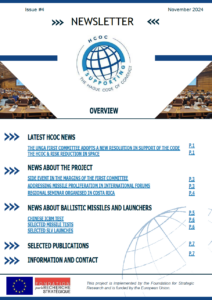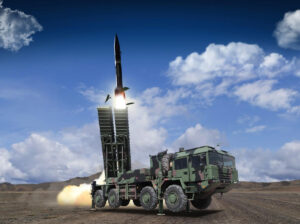Controlling ballistic missile proliferation
Strategic Analysis
Volume 35, NO. 2
This article evaluates the opportunities associated with The Hague Code of Conduct (HCoC) for India. HCoC is a stand-alone agreement against ballistic missile proliferation. Since the 1974 Pokharan nuclear tests it has been tricky for India to get into the non-proliferation mainstream. The success of the 2005 Indo-US nuclear deal is a first step towards global acceptability of India’s non-proliferation and disarmament policies. Now, it is important for India to start supporting the international norms which do not affect their strategic programmes. This article argues that by signing the HCoC India could demonstrate its commitment towards the global non-proliferation and disarmament regimes.
FEBRUARY 2011
Ajey Lele



